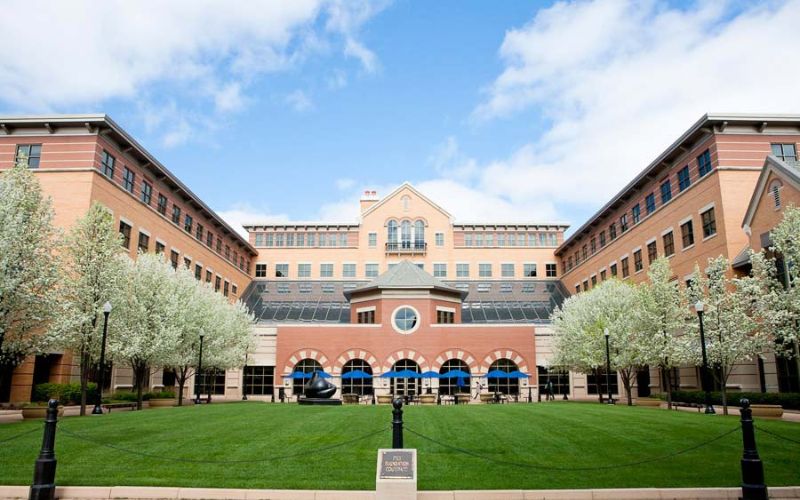
- Details
- By Elyse Wild
The NAHF Board selected the grant recipients at a meeting held on June 12, after reviewing 13 applications. The focus of this year's funding is on assisting Michigan public schools in the costly process of decommissioning and rebranding outdated mascots. This initiative is part of a broader effort to eliminate mascots that perpetuate negative stereotypes of Native Americans.
Dorie Rios, NAHF Chairperson and Tribal Council Chairperson for the Nottawaseppi Huron Band of the Potawatomi (NHBP), highlighted the significant progress made in recent years. "Over the past several years, we have helped 15 schools retire and rebrand their mascots. In 2018, we started with six 'R-word' mascots. After this year, we will have zero in Michigan," Rios said. She emphasized that the NAHF’s commitment extends beyond financial support, offering guidance and assistance to communities as they transition to more respectful and inclusive identities.
The NAHF encourages schools to engage with both students and local Tribes when considering a mascot change. The fund specifically supports schools that have already identified new branding and are ready to implement the change.
2024 Grant Recipients
The following projects have been awarded grants:
Albion College: $35,000 to create a culturally appropriate exhibit and site co-management plan at the Whitehouse Nature Center.
Camden Frontier School: $105,061.20 to rebrand the current "R-word" mascot, including updates to signage, athletic facilities, and apparel with the new "RedHawks" mascot.
East Jordan Public Schools: $12,570 to implement the Nbwaachiwedaa miinwaa Kinomaagedaa: Let's Visit and Learn Program. This is in addition to a previous NAHF grant received in 2021.
Gladstone Area Schools: $18,575.05 to maintain and protect Native American statues in their park and to implement educational initiatives.
Grand Ledge Public Schools: $3,200 to develop a culturally appropriate Anishinaabe history lesson for third graders.
Grand Valley State University: $63,467.20 to support Native and Indigenous students and to expand awareness of Anishinaabe culture across the campus.
Okemos Public Schools: $8,000 to create Michigan history lessons focusing on the Anishinaabe people for third graders, building on a previous grant from 2021.
Plymouth-Canton Community Schools: $145,894.40 to replace the "Chiefs" mascot at Canton High School with the new "Cobras" mascot.
Port Huron Area School District: $86,052.24 to replace mascots at Michigamme and Roosevelt Elementary Schools and High School. This is an extension of a 2023 NAHF grant.
Suttons Bay Public Schools: $6,600 to further develop cultural curriculum, in addition to grants received in 2020 and 2018.
These grants will be formally presented at the NAHF Grant Award ceremony, scheduled for September 13, 2024, at FireKeepers Casino Hotel, following the NAHF Board Meeting.
The NAHF Board includes Chairperson Dorie Rios (NHBP Tribal Council Chairperson), Vice Chairperson Melissa Kiesewetter (Michigan Dept. of Civil Rights Tribal Liaison/Native American Specialist), Secretary Elizabeth Kinnart (Sault Ste. Marie Tribe of Chippewa Indians Citizen), Treasurer Robyn Elkins (NHBP Tribal Council Vice-Chairperson), and Board Member Kimberly McClellan (Grand Traverse Band of Ottawa and Chippewa Indians).
For more information about past recipients or future grant applications, visit nahfund.com.
More Stories Like This
Bipartisan Vote Keeps Institute of American Indian Arts Alive and FundedNew UNLV Executive Certificate Focuses on Tribal Governance, Economic Leadership
Bureau of Indian Education Graduation Rates Increase as Agency Reforms Fold into Interior and Labor Departments
Deb Haaland Announces Education Platform, Secures Teachers Union Backing
Native Americans Could Be Hit Hard as Education Department Resumes Student Loan Wage Garnishment
Help us defend tribal sovereignty.
At Native News Online, our mission is rooted in telling the stories that strengthen sovereignty and uplift Indigenous voices — not just at year’s end, but every single day.
Because of your generosity last year, we were able to keep our reporters on the ground in tribal communities, at national gatherings and in the halls of Congress — covering the issues that matter most to Indian Country: sovereignty, culture, education, health and economic opportunity.
That support sustained us through a tough year in 2025. Now, as we look to the year ahead, we need your help right now to ensure warrior journalism remains strong — reporting that defends tribal sovereignty, amplifies Native truth, and holds power accountable.
 The stakes couldn't be higher. Your support keeps Native voices heard, Native stories told and Native sovereignty defended.
The stakes couldn't be higher. Your support keeps Native voices heard, Native stories told and Native sovereignty defended.
Stand with Warrior Journalism today.
Levi Rickert (Potawatomi), Editor & Publisher


